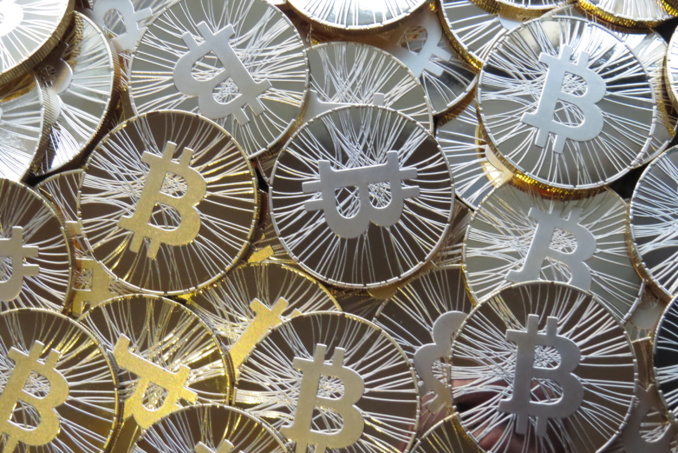At the end of June, 24.5 thousand bitcoins will be sold in Sydney at an auction. This premiere event held outside the United States is organized by financial company Ernst & Young. Earlier in 2014 and 2015, the American special services auctioned off more than 170 thousand bitcoins confiscated as a result of closing drugs and weapons online store Silk Road.
The auction will be held on June 20-21. Ernst & Young is confident that the event will attract not so much members as large investors. "It will be quite a hot, in terms of competition, auction, much more competitive compared with the previous, given that the price of Bitcoin has ceased to be so unstable," - said Adam Nikitins, transaction partner at Ernst & Young.
In the first five months of this year, Bitcoin quotes on electronic exchanges hovered around the level of $ 450. On Saturday, however, the course of digital currency increased immediately by 10% and reached a maximum in the last 20 months, touching a high of $ 540 per one bitcoin. On Sunday, the digital currency’s price has slightly decreased. If the quotations remain at the same level by the end of the month, the Sydney auction will derive approximately $ 13 million in total. All Bitcoins involved in the auction will be divided into 11 lots of 2 000 coins each. The last item will contain 2518 coins.
The Bitcoin system and its technological basis got interested many of the leading global banks, including Barclays, UBS, BNP Paribas, Societe Generale, Citibank, Goldman Sachs, Standard Chartered and Banco Santander. Use of "chain blocks" is not limited by solely economic advantage: it is able to completely change not only the financial system, but also mechanisms of all other sectors of life and business. One of the most striking examples of this technology is NASDAQ’s experiment. The exchange house decided to take advantage of the "block chain" in terms of storage and updating data on current owners of companies’ shares, as well as to conduct transactions directly on the currency’s purchase.
Bitcoin is a payment system, which was launched January 1, 2009 by an unknown programmer Satoshi Nakamoto, whose name may be fictional, but his identity has not been established yet. This system uses the digital coin - Bitcoin - as a means of payment. Nakamoto managed to create a unique system that allows users to omit services of a central body that would issue coins, as well as intermediaries, which would be engaged in carrying out duties. Thus, Bitcoin has become completely independent of governments and banks. This is possible thanks to the Blockchain technology, which lies at the basis of Bitcoin. In fact, it is a public register of all transactions carried out within the system, which is updated and supported by all members of the network. Transactions are added to the register not by one, but by whole blocks (hence the name of the technology) every 10 minutes. For the safety and authenticity, all transactions taking place within the network meet basic principles of encryption, which makes cheating on other network members impossible.
source: cnbc.com
The auction will be held on June 20-21. Ernst & Young is confident that the event will attract not so much members as large investors. "It will be quite a hot, in terms of competition, auction, much more competitive compared with the previous, given that the price of Bitcoin has ceased to be so unstable," - said Adam Nikitins, transaction partner at Ernst & Young.
In the first five months of this year, Bitcoin quotes on electronic exchanges hovered around the level of $ 450. On Saturday, however, the course of digital currency increased immediately by 10% and reached a maximum in the last 20 months, touching a high of $ 540 per one bitcoin. On Sunday, the digital currency’s price has slightly decreased. If the quotations remain at the same level by the end of the month, the Sydney auction will derive approximately $ 13 million in total. All Bitcoins involved in the auction will be divided into 11 lots of 2 000 coins each. The last item will contain 2518 coins.
The Bitcoin system and its technological basis got interested many of the leading global banks, including Barclays, UBS, BNP Paribas, Societe Generale, Citibank, Goldman Sachs, Standard Chartered and Banco Santander. Use of "chain blocks" is not limited by solely economic advantage: it is able to completely change not only the financial system, but also mechanisms of all other sectors of life and business. One of the most striking examples of this technology is NASDAQ’s experiment. The exchange house decided to take advantage of the "block chain" in terms of storage and updating data on current owners of companies’ shares, as well as to conduct transactions directly on the currency’s purchase.
Bitcoin is a payment system, which was launched January 1, 2009 by an unknown programmer Satoshi Nakamoto, whose name may be fictional, but his identity has not been established yet. This system uses the digital coin - Bitcoin - as a means of payment. Nakamoto managed to create a unique system that allows users to omit services of a central body that would issue coins, as well as intermediaries, which would be engaged in carrying out duties. Thus, Bitcoin has become completely independent of governments and banks. This is possible thanks to the Blockchain technology, which lies at the basis of Bitcoin. In fact, it is a public register of all transactions carried out within the system, which is updated and supported by all members of the network. Transactions are added to the register not by one, but by whole blocks (hence the name of the technology) every 10 minutes. For the safety and authenticity, all transactions taking place within the network meet basic principles of encryption, which makes cheating on other network members impossible.
source: cnbc.com



















